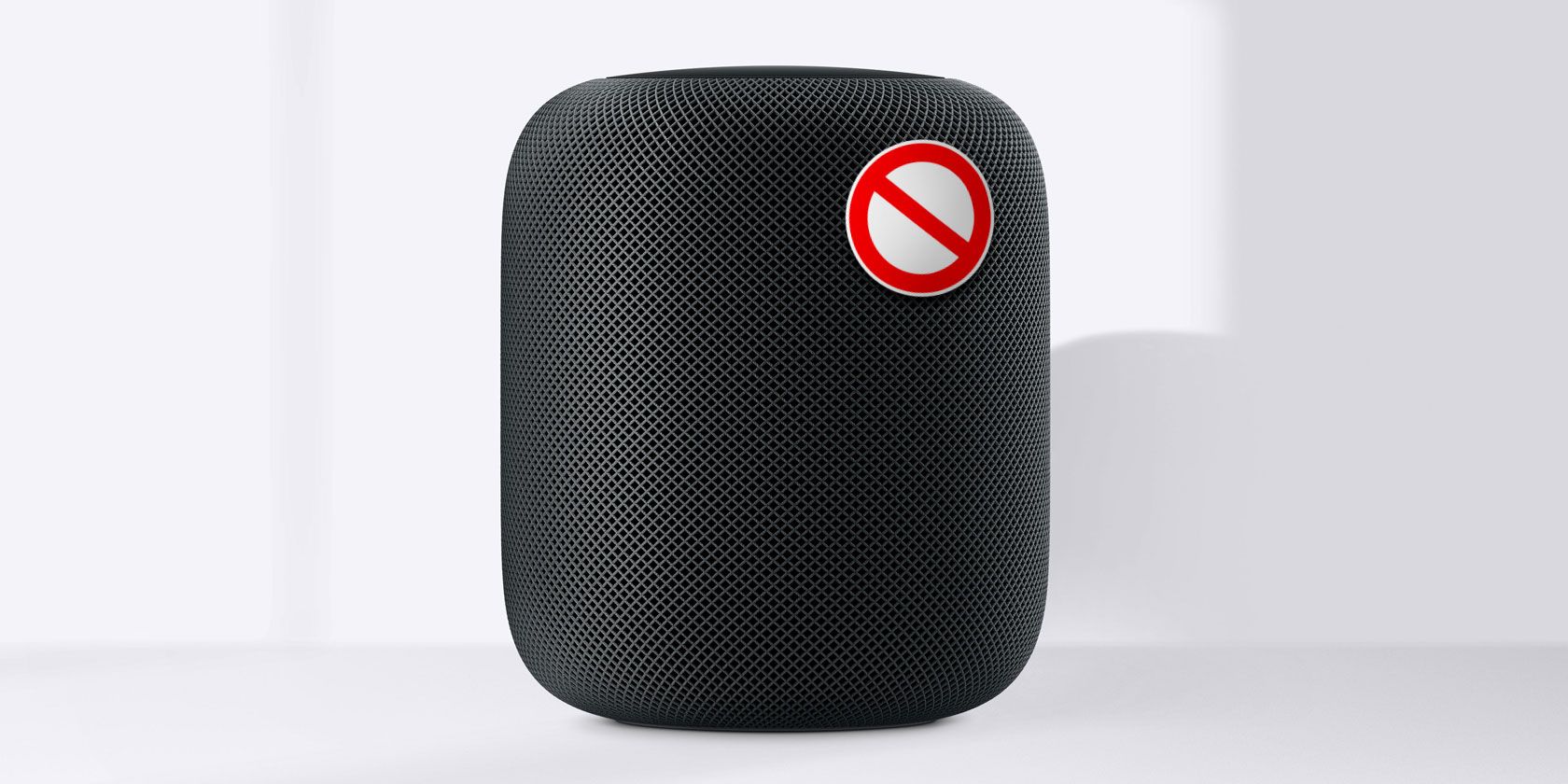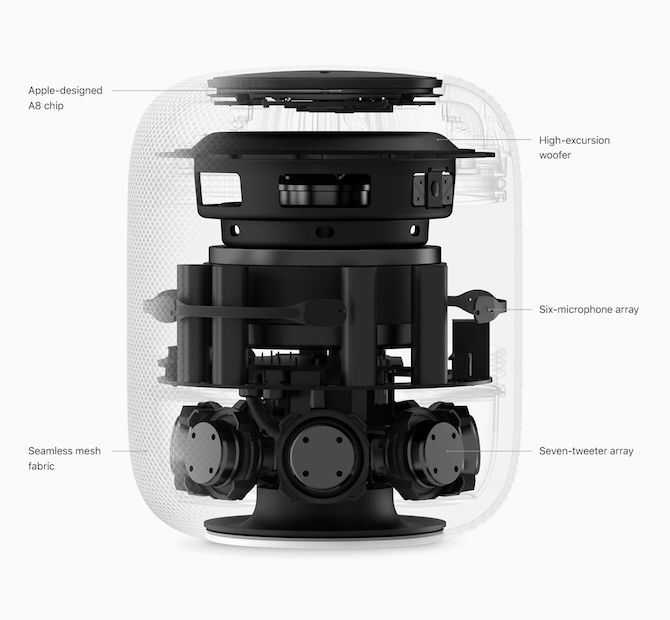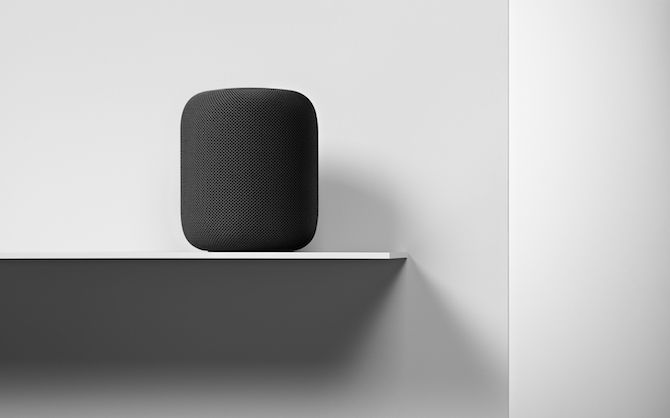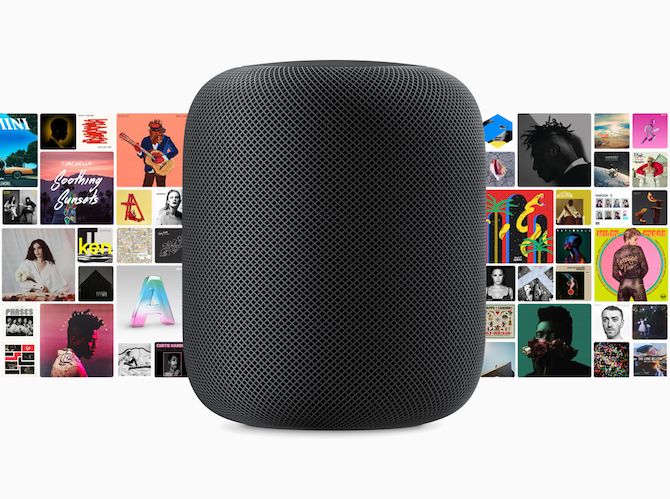The Apple HomePod is an amazing speaker that's designed to work seamlessly with Apple Music and AirPlay. It's an engineering marvel, given how much Apple was able to stuff into this pudgy little 7-inch cylinder.
This $349 smart speaker is filled with amazing technologies. There's a seven tweeter array at the bottom, a six-microphone array at the top and an A8 processor from the iPhone 6 to supply the smarts.
But there's still a chance you'll be disappointed when the HomePod actually shows up on your doorstep. While Apple has outdone itself creating a great speaker, there are some glaring issues when it comes to usability, software and just general feature set we've come to expect from smart speakers like Amazon Echo and Google Assistant.
1. Walled Garden, Now With Higher Walls
HomePod costs $349. This is double what you'd pay Amazon or Google for a smart speaker. Even if you've got Apple devices everywhere, you can't expect HomePod to work with everything all the time.
HomePod only supports Apple Music (with iTunes Match and iCloud Music Library). So if you're a Spotify subscriber, you basically can't use any of the "smart speaker" functionality. You can AirPlay your music to the HomePod but you can't use your voice to start or control playback.
Yes, we are used to Apple's walled garden approach and with things like App Store, and it can be a positive restriction. But HomePod goes against the notion of what we think of a speaker. Even Amazon Echo and Google Home let you switch the default music streaming service!
2. Siri Still Sucks
Whenever we do a voice assistant comparison here at MakeUseOf, Siri consistently ends up at the bottom of the list.
Google Home is great at understanding anything you have to say, and it will reply with the knowledge graph of Google Search. Amazon Echo takes a narrow, command-based approach but it works almost every single time. Siri is known to be hit or miss on iPhones and iPads and HomePod runs an even more limited version of that.
Siri works reliably when you're asking her to do something on your device (like calling or messaging someone). And that part is still true for HomePod. When you ask HomePod to play a song, a playlist, a podcast, take notes or to control your HomeKit devices, HomePod will do that reliably most of the time.
But Siri on HomePod is extremely limited. You can only listen to Podcasts from Apple Podcasts and you can only control smart home devices which are HomeKit compatible (which isn't a long list).
Siri can't even set multiple timers, which is one of the most common uses cases for a smart speaker. And unlike the Amazon Echo, there aren't thousands of skills that will add interesting and novel use cases to the HomePod either.
3. No Audio In, No Bluetooth Streaming
If you're all in on the Apple ecosystem -- everyone in your family uses iPhones, iPads, and MacBooks -- then sure, HomePod will work great for you.
But if you've got an Android phone, you can't even set up the HomePod. And while HomePod does have Bluetooth 5.0 built-in, you can't use it stream music from any device. Streaming only works over AirPlay. There are some Android apps like DoubleTwist which do support AirPlay, but it's more of an exception than the rule.
Another glaring omission is the lack of a physical audio-in port. So if you're looking for a plug and play, reliable speaker system that will work regardless of the internet connection and the proximity of your iPhone, HomePod isn't for you.
This not only severely limits HomePod's use case as a speaker, but it also drastically decreases its lifespan. HomePod is equal parts computer and a speaker. And if three-five years down the line, Apple stops updating the software, HomePod will essentially turn into a big, expensive paperweight. With phones and computers, we are used to this.
But speakers last for a couple of decades, not a couple of years! This is yet another way HomePod is challenging our notion of what exactly a speaker is.
4. Not the Stereo Replacement You Hoped For
You're thinking, "It doesn't matter if it has a line-in port or not, I can still use it as a stereo because I've got an Apple TV!" But there are two main issues.
First of all, HomePod doesn't directly integrate with the Apple TV. You can't ask HomePod to play something on Apple TV for you (something you can do on Amazon Echo and Google Home and (with Fire TV and Google Chromecast respectively). You can manually change the sound output to HomePod but it will lose the connection the next time you play some music and you'll have to start the process all over again.
And second of all, HomePod's promised stereo mode still isn't here. Even if you spend $700 to buy two HomePods and put them right next to your TV, you can't use them in a stereo setup because Apple is yet to ship the AirPlay 2 technology which will make this possible.
Granted, AirPlay 2 should ship in the next couple of months, after which, you should be able to do a multi-room setup. But it will still be about playing Apple Music using your voice. HomePod won't be able to replace your sound bar or your 5.1 surround stereo setup.
5. HomePod Is a Different Kind of Privacy Nightmare
Apple prides itself on respecting your privacy and not collecting your data like other giants do. But while that's true, there's a whole different kind of privacy issue with the HomePod.
You see, HomePod can't recognize multiple voices right now. If you rushed through the setup process, you've enabled the Personal Requests feature that can let anyone in your home read and reply to your messages.
Yes, HomePod requires your iPhone to be on the same network for this feature to work but that won't stop your siblings from messing about when you're upstairs or in the shower. For a company that prides itself on privacy, this is a glaring omission. Thankfully you can turn this feature off from the Home app.
Ultimately, the Apple HomePod Is Half-Baked
If you're in the tiny minority of audiophiles who can truly appreciate HomePod's sound quality and you're ok with only ever using it with Apple Music, go ahead and order the HomePod. But for most Apple users, I would suggest you either wait six months or just buy an Amazon Echo, Google Assistant or even the Sonos Play:1 (which is also a really good speaker without the limitations of the HomePod).
It's clear to me that this is very much version 0.9 of the HomePod (I'm hesitant to even call it version 1.0 because it doesn't ship with AirPlay 2). But the hardware is all there, and it's great. So there's hope that in the future, HomePod will be a lot more appealing to a lot more users. Apple could come up with more SiriKit extensions for third-party apps at WWDC 2018. And if they want, they could open up Bluetooth streaming as well (but I'm not going to hold my breath for that one).
If what you want is an actually useful smart speaker with good enough sound quality, buy an Amazon Echo Plus or a Google Home. Spend the rest of the money on a pair of AirPods. Unlike HomePod, AirPods are everything they promise to be and a lot more.




